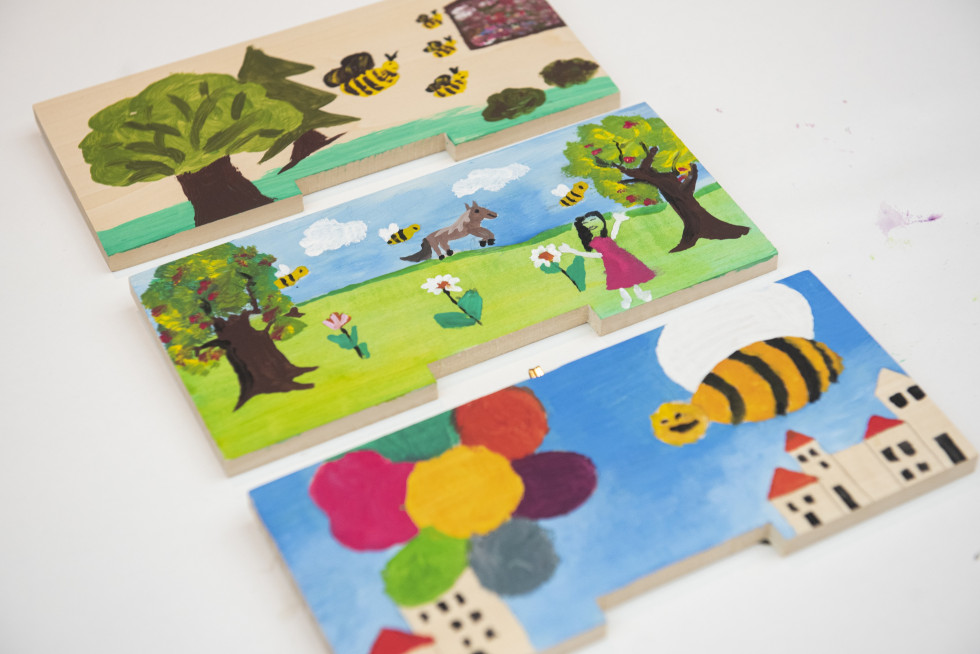Anniversary of the declaration of World Bee Day
The declaration was marked at the National Assembly, among other places, with children setting to work drawing beehive panels.
The panels that decorate beehives in Slovenia are part of the country’s cultural heritage and their beginnings date back to the 18th century. The rich and colourful motifs on the panels tell us the thoughts and emotions of people who lived at that time. Today there are over 600 known motifs. Over the last 150 years or so, beekeepers have created and put in place more than 50,000 beehive panels, often in an attempt to bring good luck. But that is not all... Did you know, for example, that bees can distinguish colours and therefore use the panels to guide them to their own hive?
Children from France Bevk primary school were among those who tried their hand at drawing beehive panels at the event held at the National Assembly. Through play and creativity by the younger generation, we are able to highlight the importance of preserving bee populations and beekeeping itself. Jože Podgoršek, state secretary at the Ministry of Agriculture, pointed out that while beekeeping does appear small in scale compared to other agricultural sectors, it nevertheless plays an important role in the production of bee products as well as in pollination and environmental protection.
It is important to note as well that EU funds provided to the beekeeping sector have increased on account of an increase in the number of beekeepers and bee colonies across the Member States. Under the future agricultural budget, the European Commission is keen to see an increase to EUR 180 million for the 2023–2025 apiculture programme.
“According to the Commission’s proposal, Slovenia would see an increase in funding for the implementation of 2023–2027 apiculture programme measures from the current EUR 383,000 a year to EUR 650,000, which Slovenia has made particular efforts to secure,” added Podgoršek. He also announced that in January the ministry, spurred on by the Slovenian Beekeepers' Association, aims to present an initiative to the Council of the European Union for the mandatory labelling of origin so that consumers are not misled as to where their honey comes from.


